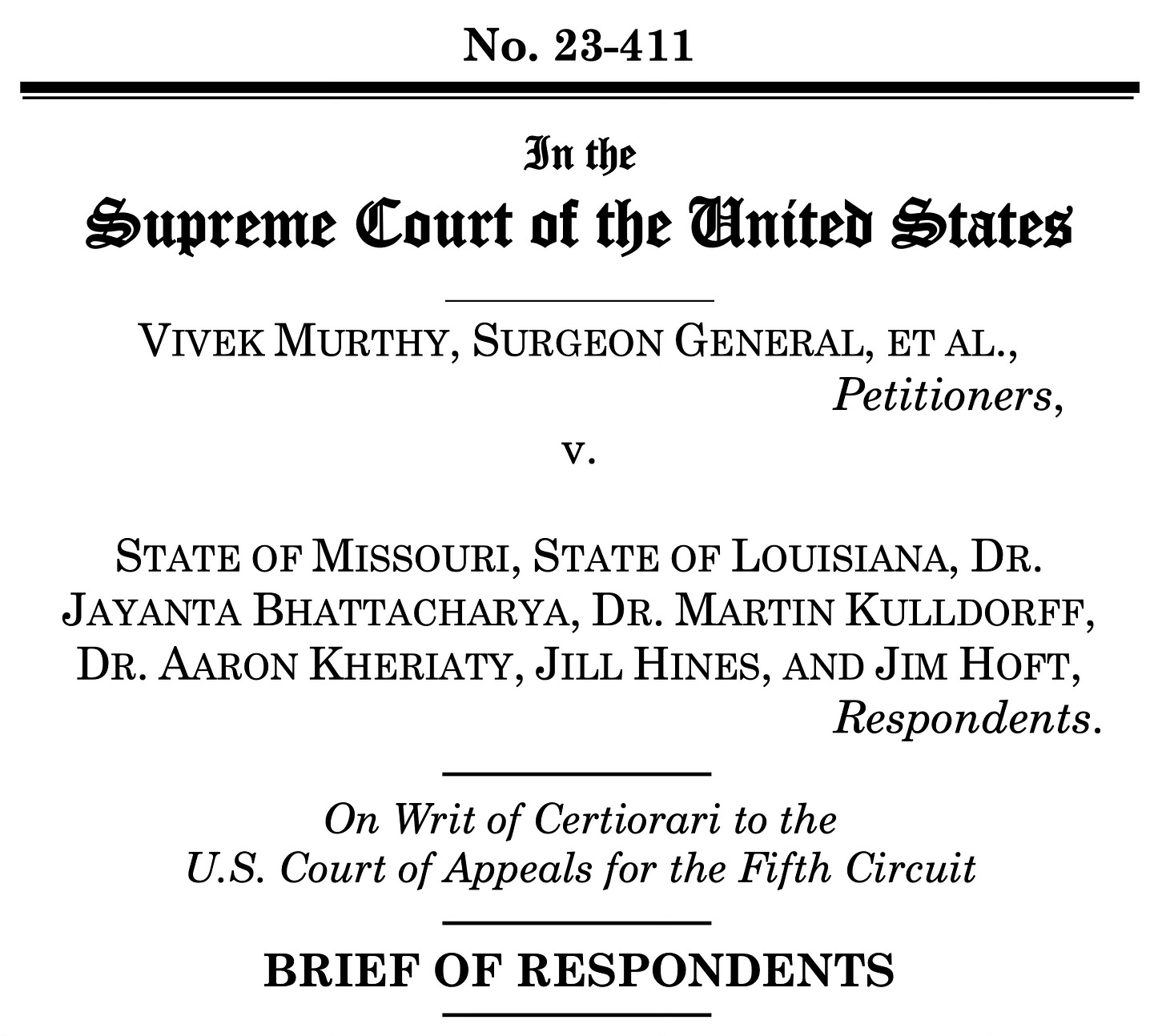Missouri v. Biden: Summary of our Supreme Court Brief
An overview with commentary of our written arguments submitted to the Supreme Court in Missouri v. Biden, and some (bad) news from France
We recently submitted our Brief of Respondents to the Supreme Court. A note on the case, which I continue to refer to as Missouri v. Biden to avoid confusion. Technically, the Supreme Court appeal is referred to as Murthy v. Missouri: the government submitted the appeal, so for the appeal they are the “petitioners” (always listed first) and we are the “respondents”. Once the Supreme Court rules on the injunction and the case goes back to district court for trial we will again be the petitioners (plaintiffs) and the government the respondents (defendants). Hope this makes sense.
For those who don’t want to wade through our entire 53-page brief, I will provide a condense summary here, with some highlights from the text. But first, a brief update from abroad. As I’ve previously written about here, the current attacks on free speech are not limited to the U.S.: this is clearly a global phenomenon. One reason why our case is so important is that the First Amendment provides the strongest free speech protections of any Western nation: if we cannot defend this right here, it will be harder for others to defend it abroad.
Take the case of France, for example, which has moved from censorship of disfavored speech to criminalization of dissenting opinions. This week, a law was passed in France qualifying any opposition to covid mRNA injections as a “sectarian aberration”. It carries a penalty of up to 3 years imprisonment and 45,000 euros. The suppression of medical dissent under a law that critics are calling the “Pfizer article” has been passed by the French Parliament. Censorship, as I have argued, is incompatible with science, but criminalization pushes France ever further in the direction of totalitarianism. Even France's Conseil d'Etat—a governmental body that acts both as legal adviser to the executive branch and as the supreme court for administrative justice—condemned the law as a disproportionate and unjustified attack on freedom to express dissenting scientific and medical opinions.
A law like this in the United States would be struck down by the courts under any reasonable interpretation of the First Amendment; however, the First Amendment is merely words on a piece of paper if Americans do not defend it from governmental assault. Which brings me back to Missouri v. Biden and our brief to the Supreme Court.
The Court should affirm the Fifth Circuit’s injunction and put an end to “arguably … the most massive attack against free speech in United States’ history.”
Keep reading with a 7-day free trial
Subscribe to Human Flourishing to keep reading this post and get 7 days of free access to the full post archives.




